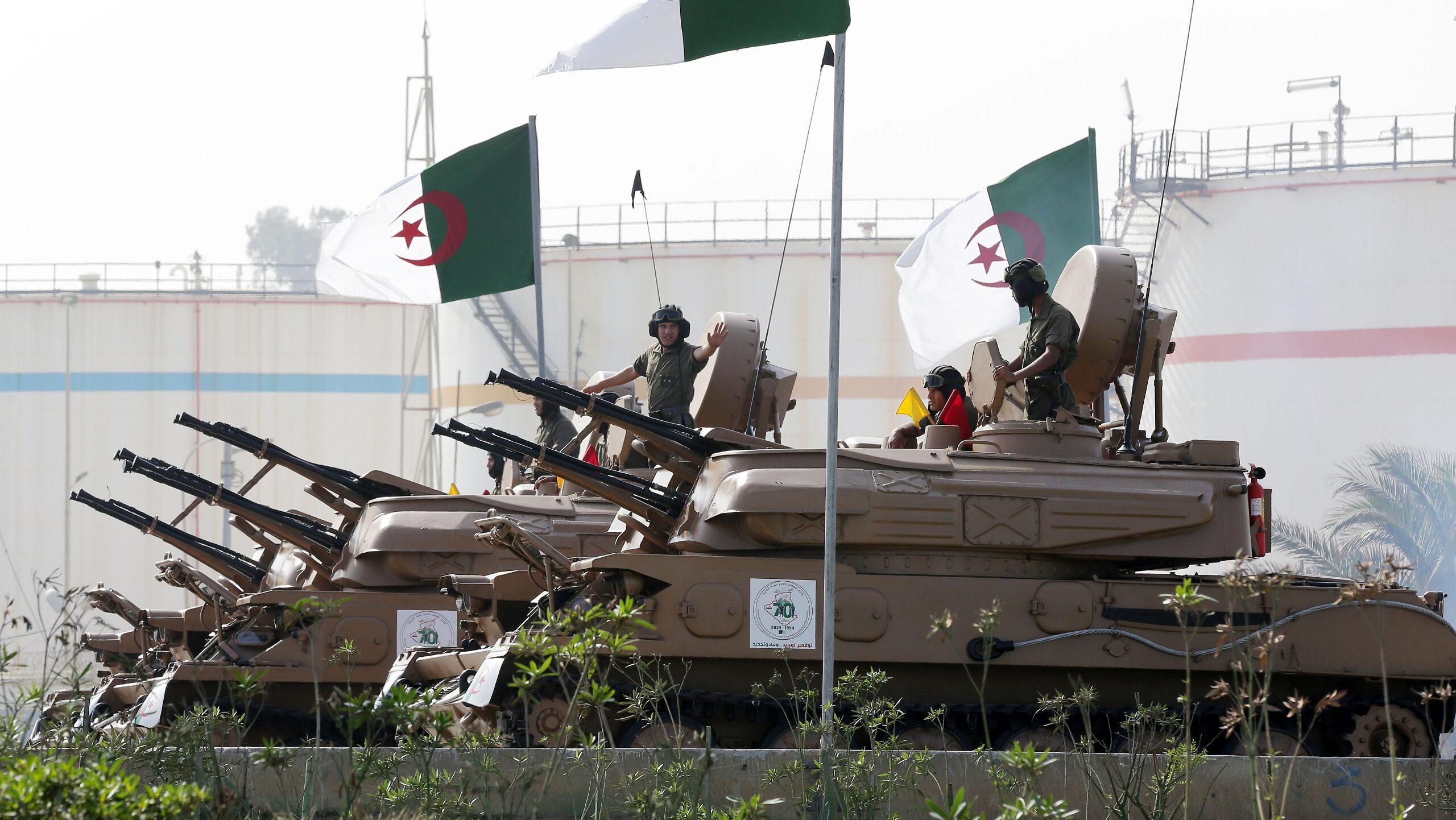Algeria Celebrates 70th Anniversary of Revolution With Military Parade, Pardons
Algeria marked the 70th anniversary of its 1954 revolution against French colonial rule with a large-scale military parade in Algiers on Friday. President Abdelmadjid Tebboune presided over the ceremony, commemorating the launch of the National Liberation Front’s (FLN) uprising, which ultimately led to Algeria’s independence in 1962. Thousands of people gathered to witness the event, applauding as military jets roared over the capital and soldiers marched past. President Tebboune, alongside Chief of Staff General Said Chengriha, took part in the parade from an open-top vehicle, while a 70-gun salute resonated through the city.
The celebration featured aerial demonstrations, naval units, and an array of defense equipment, showcasing Algeria’s modern military strength. Algeria’s defense budget, one of the largest in Africa, was doubled to $22 billion in 2023, with plans for another increase in 2025. Russia remains Algeria’s primary arms supplier, providing much of the military hardware on display, including Su-30 fighter jets, T-90 tanks, and submarines equipped with long-range missiles.
In his speech, President Tebboune underscored the enduring significance of Algeria’s independence, saying, “Algeria, which once overcame colonialism, continues its path of victories with confidence.” The event honored the immense sacrifice of Algerians, with an estimated 1.5 million Algerians killed during the eight-year war, according to Algerian sources, though French records suggest a lower figure of around half a million. Regardless, both sides agree that the vast majority of those who died were Algerian. The conflict ended in 1962 with the signing of the Evian Accords, which concluded 132 years of French rule.
This holiday season, give to:
Truth and understanding
The Media Line's intrepid correspondents are in Israel, Gaza, Lebanon, Syria and Pakistan providing first-person reporting.
They all said they cover it.
We see it.
We report with just one agenda: the truth.


Notable regional leaders were in attendance, including President Kais Saied of Tunisia, Mauritania’s President Mohamed Ould Ghazouani, and Libya’s Presidential Council Chairman Mohamed al-Menfi. Morocco, however, was absent from the celebrations, reflecting the ongoing strain in Algeria-Morocco relations since Algeria severed diplomatic ties in 2021 after Morocco’s decision to normalize relations with Israel. Also present was Brahim Ghali, leader of the Polisario Front, an organization fighting for independence in Western Sahara, a region primarily controlled by Morocco.
In a tribute to the country’s sacrifices, Tebboune laid a wreath at the Martyrs’ Monument before the parade. The anniversary coincided with pardons for nine prisoners, including journalist Ihsane El Kadi, a prominent voice in Algeria’s 2019 pro-democracy protests.
While independence liberated Algeria from colonial rule, it also led to new dependencies. After the revolution, Algeria aligned with radical pan-Arab nationalism and the nonaligned movement, resisting Western influence while cultivating strong ties with the Soviet Union. This alliance provided economic and military support but created dependencies that continued into the Cold War era, entrenching Algeria’s reliance on external powers.
Today, President Tebboune’s government seeks to present a more self-reliant Algeria, strengthening global trade and maximizing its energy resources. However, ongoing reliance on Russian military support and oil and gas revenues reflects the challenges Algeria faces in achieving full independence from foreign influences.

